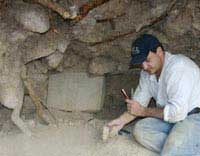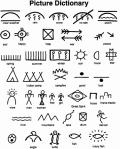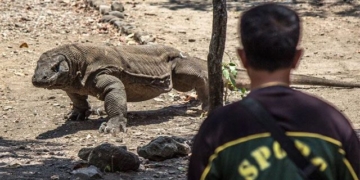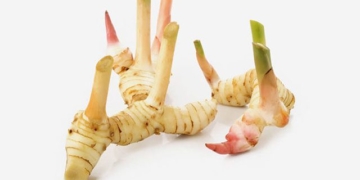The shabby grave found in an empty lot has stirred the compassion of many. Yet, the owner of this grave is no ordinary figure.
The Dilapidated Ancient Tomb in the Abandoned Lot
In the village of Huai Zi, located in the northwest of Yangzhou (China), there exists a patch of yellowed land that has not been touched by any local resident for many years. According to the villagers, this lot has remained barren, overgrown with weeds, and looks quite desolate.
It wasn’t until 2013, during the commencement of a real estate project in West Lake Town, Yangzhou Province, that an excavator accidentally unearthed some very hard materials. Subsequently, the construction team discovered traces of a tomb buried underground, prompting an immediate halt to the project and a report to the city authorities.
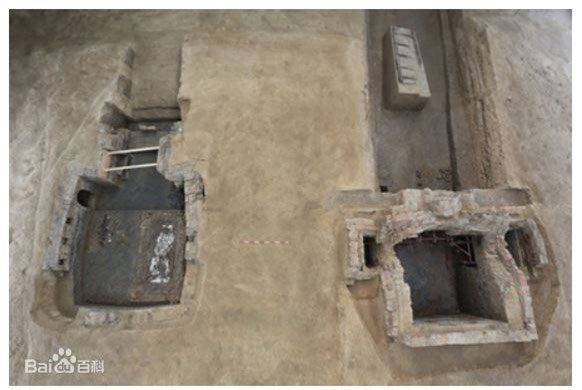
Two graves found in the dilapidated tomb. (Image: Baidu).
Quickly, archaeologists arrived and indeed uncovered an ancient tomb consisting of two graves, but both of these graves are in extremely poor condition, even worse than those of an ordinary wealthy person from ancient times.
The total area of this tomb is only about 41 square meters, comprising five sections: a main burial chamber measuring 3.84 square meters, and east and west burial chambers containing the remains of a woman, along with a corridor and a ritual grave.
In the main burial chamber, the remains are no longer intact, leaving only two teeth, while the body of the woman is relatively well-preserved, approximately 1.5 meters tall and about 56 years old.
The bricks used in the two graves have been assessed by experts as a type of brick that was only used in palaces during the late Sui Dynasty. Additionally, they discovered several royal artifacts, such as a jade belt and four bronze lion door handles.
Sui Yangdi: The Most Licentious Emperor in History?
A stone tablet found in the western tomb bears the inscription “Tomb of the Late Sui Emperor Yang”, indicating that this is the tomb of Emperor Sui Yang. The engraved words on this tablet serve as crucial evidence proving that this is the tomb of Sui Yangdi and his wife, Empress Xiao.
Sui Yangdi was the second emperor of the Sui Dynasty, often depicted in history and media as a “licentious and infamous character.” He has been attributed with many negative labels, such as patricide, usurping his stepmother, and even pedophilia.
However, modern historians argue that these are mostly unfounded fabrications. Sui Yangdi did not kill his father or have any inappropriate relations with his “stepmother.” This emperor is also seen as an ambitious ruler, but his brutal policies led to widespread hatred among the populace, actively tarnishing his image as a sovereign.
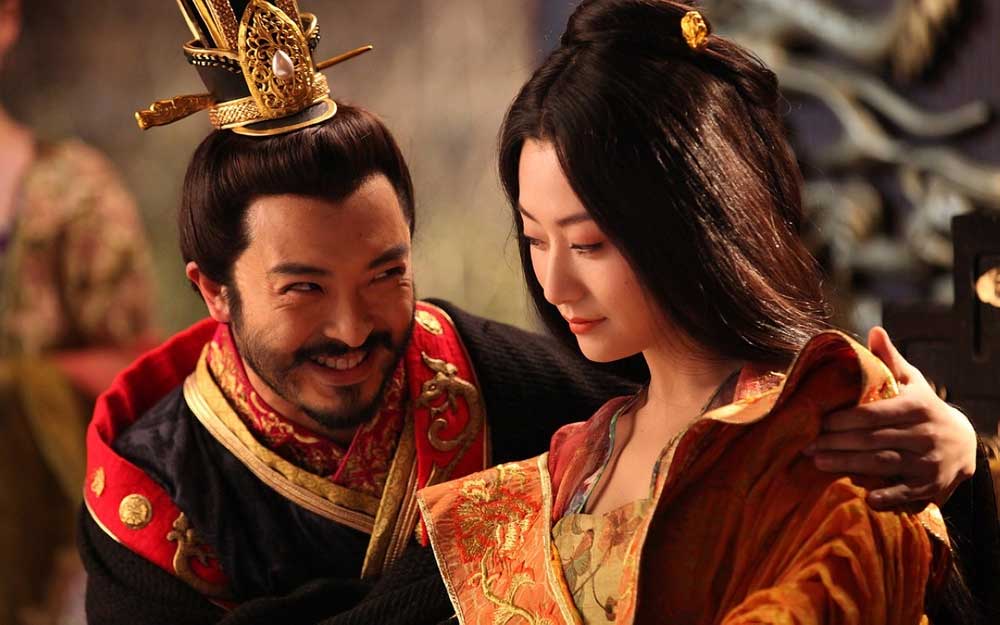
Depiction of Sui Yangdi and Empress Xiao in media. (Image: Sohu).
During his reign, although he achieved certain successes, such as expanding the imperial examination system and enhancing waterway transportation through canals, Sui Yangdi is still regarded as one of the worst tyrants, responsible for destroying the efforts of his father, Emperor Sui Wen, to unify the country, leading to the Sui Dynasty’s demise within just two generations.
His failed military campaigns against Goguryeo, coupled with increased taxation to fund wars and civil unrest resulting from these taxes, ultimately contributed to the dynasty’s collapse.
As his reign progressed, Sui Yangdi neglected governance, favored treacherous officials, alienated loyal ministers, and raised taxes to fund the construction of luxurious palaces and gardens for his indulgence, exploiting the populace to build walls and rivers, and recruiting numerous beauties into his court, sinking into debauchery. The result was that “the people perished from forced labor.”
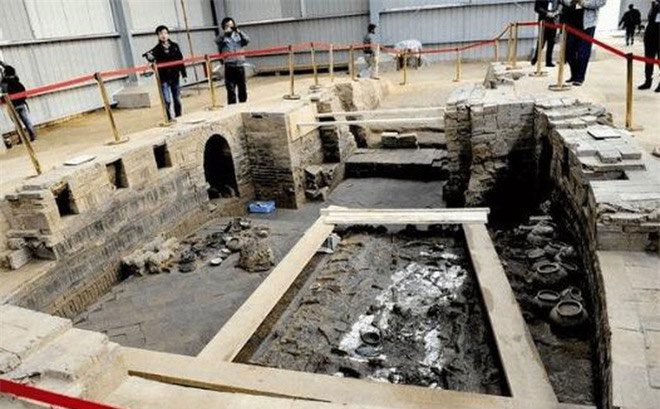
Scene of the excavation of Sui Yangdi’s tomb. (Image: Lsbkw).
Additionally, he frequently issued orders to attack Lin Yi (Champa), Goguryeo, etc., resulting in heavy losses for his troops and widespread resentment among the people. Later, various factions rose up in rebellion against the Sui, leading to the gradual decline of the dynasty. The final years of Sui Yangdi’s life were indeed tragic.
Compared to many other royal tombs, Sui Yangdi’s tomb is significantly smaller. Moreover, the burial goods are devoid of any luxurious items like gold, silver, or jewels.
The reason provided by Chinese archaeologists is that this emperor may have died suddenly while in Yangzhou during a coup, and people did not have time to construct a grand tomb.









































